
Negotiating or Fighting With the United States?
The editorial of Arman Melli penned by “reformist” academic Sadegh Zibakalam underscores that now that the Iranian government seems to have greenlighted negotiations with the United States, any criticism might bring negotiations to an end.
All signs imply that apparently after 45 years, the Iranian republic is greenlighting negotiations with Washington over different issues.
But the main question is: what should the critics of the negotiations do? Should they make a fuss by saying that if there was supposed to be a deal with the United States, then how come there was so much pressure on former President Hassan Rouhani’s government for holding negotiations with the Americans?
It seems that Iran’s national interests require sitting at the negotiating table with the West. As a matter of fact, even the most ideological “hardliners” in Iran have realized that the younger generation does not care about hostility with the United States and the West. And the idea of fighting against the “world arrogance” which was one of the fundamental issues in the Iranian revolution is no longer valued in Iran as before.
What is more, it is becoming gradually clear that fighting with the United States has had negative impacts on Iran’s national interests. As mentioned above, even the most radical “hardliners” have found out that while fighting with the West may have been valuable before, it no longer has any value. There is no need for holding a poll in this regard; officials can just take a look at cyberspace, the media and the press, and they will see that apart from Iran’s state television and Friday mass prayer platforms, no one else endorses hostility against the United States. So no one should complain about why fighting with the United States did not stop four, 10, or 20 years ago.
We must accept that animosity toward the United States is one of the pillars of the Iranian establishment’s ideology and it cannot be easily discarded. That is because the proponents of this approach will ask: if we could stop fighting the United States, why did we not do it a year ago? Why was so much invested in fighting the United States? Such issues must not be raised as they might damage these negotiations and the hostility against the United States might continue.
Dreaming of 30% Inflation
The editorial of Tejarat urges that Iranian officials cannot bring down the inflation rate because the country’s economy is not heading toward development.
Figures published by Iran’s Statistical Center indicate that the rate of inflation last month was 46.5%, while point-by-point inflation was at 39.5%. And now the deputy governor of the Central Bank of Iran is talking about bringing inflation down to 30%.
Based on the economic realities of the country, there is no prospect for decreasing the inflation rate. The structural foundations of the country are so massively damaged that there are no signs of decreasing the inflation rate.
With its flawed policies, the government has created obstacles in the development of the country. And now even if the sanctions are lifted, people will still have to face high inflation because Iran’s economy is not moving toward development. Nothing can decrease the inflation rate to about 10% in Iran.
Besides, the officials who are proud of the inflation rate of 39.5% must know that such inflation rates are very rare. Some countries might have faced such economic disasters for a short period of time, but their inflation rates have remained high with no prospect for decreasing it.
Ebrahim Raisi’s government, that has disappointed even its own supporters, has turned to releasing statistics that are in its favor and interpreting these numbers optimistically to convince the public of the improvement in conditions in Iran.
The inflation rate might slow down due to the deep economic recession. Housing, currency, gold and automobile markets have plunged into recession which is why the growth of the inflation rate has declined. But when people go to supermarkets to buy food items, they see the rapid increase in the rate of inflation of food items. In the meantime, rental costs are putting pressure on families.
The cost of food and housing in Iran is not similar to that of developed or developing countries. And now the middle classes can only afford to pay for food and housing and cannot spend on cultural and recreational activities.
Studies show that 60% of the Iranian population are suffering from poverty which means that more than half of the Iranian population is considered poor. In the meantime, the government refers to the general inflation rate claiming that everything is okay.
The Future Without Sanctions Is Hopeful
The editorial of Arman Emrooz expresses hope that if the sanctions against Iran are lifted, Iran’s economic growth might improve.
The governor of the Central Bank has analyzed the economic growth for this year’s spring, underscoring that they hope to take steps in the direction of controlling inflation and achieving growth in production. Altogether, one can say that given the rate of economic growth in recent years, Iran is returning to long-term macroeconomic conditions.
The Central Bank governor’s remarks were made while hope for the future of Iran depends on many factors. One of the biggest obstacles is the issue of sanctions, the lifting of which can create many changes. For example, in 2016 when the sanctions were lifted, economic growth reached 11%. But with the continuation of sanctions, one cannot have hope for the future. In fact, Iran needs sustainable economic growth which is not possible under sanctions.
Statistics too must be considered. For example, with regard to the growth in the monetary base, all records were broken in the spring, and, under these circumstances, one cannot be hopeful. We should wait and see the rate of growth in the monetary base in the summer, and if it has had a meaningful decrease, then we can hope for controlling inflation.
In recent years, economic variables have not been hopeful. Since 2012, Iran’s economic growth has been close to zero and liquidity has increased by 20 times. Under these circumstances, one cannot express hope.
For example, if one pays attention to the remarks made by European Central Bank President Christine Lagarde who talked of the continuing policies of the bank without expressing any particular hope or talking about the future specifically. Iranian officials too must stop expressing positive and negative views and must try to ensure that economic data remains positive.
Necessity of Managing Tensions With Europe
The editorial of Arman Melli argues that Iran must re-establish its relations with European countries.
There are many reasons for tensions between Iran and Europe. Europe always played an important role in Iran’s foreign policy. Now that role does not exist anymore. In economic, trade and banking relations as well as in different diplomatic issues, Europe played an important role. Now if we also take into account issues like Europe’s role in the nuclear deal (JCPOA), then we can have a better understanding of Europe’s place in Iran’s diplomacy. But now this European role no longer exists.
The other issue is the way policies are prioritized in Ebrahim Raisi’s government. This government has given priority to its neighbors in its policies, which makes Europe irrelevant to Iran’s foreign policy. The important issue in Iran’s relations with Europe is that both sides seem to have been hurt, but are trying to act in a friendly manner. But the truth is that this cannot work for long because different issues on the international stage will make countries take different stances against each other.
These cases have increased the tensions between Tehran and European countries that have imposed different sanctions against Iran for giving drones to Russia in the Russia-Ukraine war.
Currently, there is an atmosphere of cold war between Iran and Europe. Certain steps must be taken to improve this atmosphere. Dialogue can definitely play a role in de-escalating tensions.
On the other hand, Tehran must move toward realizing the capacities that exist between Iran and Europe. Although Raisi’s government is trying to strengthen relations with Iran’s neighboring countries, it must not be forgotten that there is significant scope for enhancing relations with European countries. Iran must establish relations with these countries that can play an important role in different fields.
Iran and Europe must move toward resolving their longstanding issues and resume their bilateral relations.

Iranian Ambassador to Saudi Arabia: Leaders of Iran, Saudi Arabia Resolved to Consolidate Relations
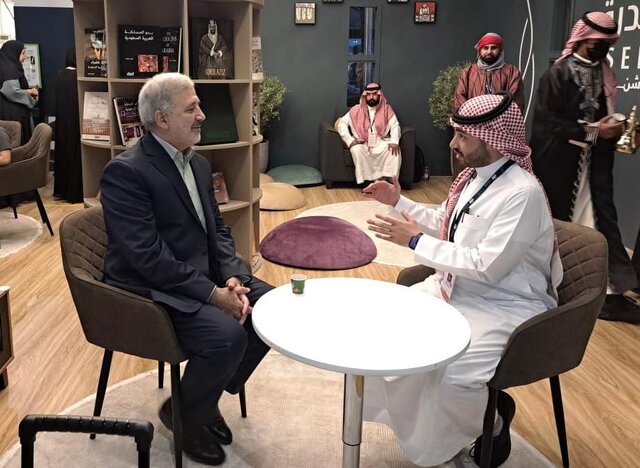
Iran’s Ambassador to Saudi Arabia Alireza Enayati pointed to the resolve of both countries’ leaders for strengthening all-embracing relations, expressing satisfaction with the expanding process of building relations.
Enayati visited Riyadh International Book Fair which is being held at King Saud University in the city of Riyadh.
The Iranian ambassador to Saudi Arabia stated that cultural heritage is an essential factor in people’s relations and consolidating the governments’ ties, “we hope to see our country present in future book fairs.”
This year, at Riyadh International Book Fair, there are 32 countries present from all over the world.
30 US Senators Call for Suspending Ariane Tabatabai’s Security Clearance
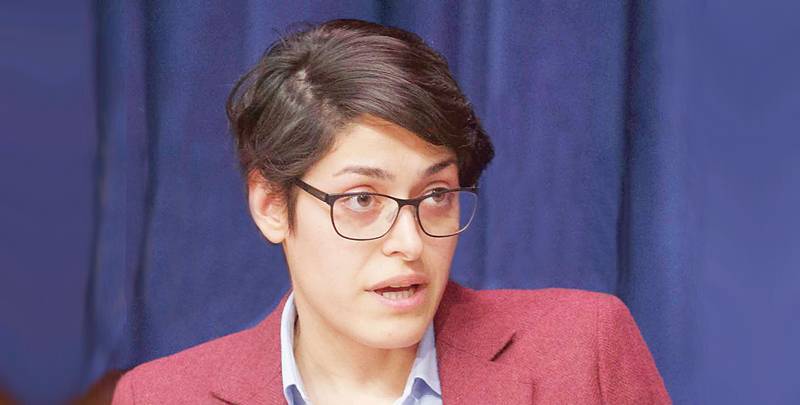
In a recent letter, 30 US Republican senators have demanded a full explanation regarding ArianeTabatabai, an Iranian-American national in the Pentagon who reportedly had “close relations with Iran.”
These senators pointed to a recent report published by Iran International and the US journal Semafor in which Tabatabai is mentioned along with other Iranian-American citizens.
In this report, it is stated that several Iranian-American citizens, in an Iranian government initiative to enhance its image and advance Tehran’s policies, were involved in issues related to US national security.
The report states that members of this network consulted with – or even asked permission from – Iranian officials via email for writing articles or participating in conferences, while it was revealed that some of these emails were directly sent to Iran’s former Foreign Minister Mohammad Javad Zarif. For example, the report alleges, “ArianeTabatabai had consulted with the Iranian government for visiting Israel or taking part in conferences.”
Republican senators wrote in their letter to the Pentagon that the leaked emails have revealed that Tabatabai had asked the Iranian government for its view on participating in conferences and had consulted with Iran’s officials before going to a US congressional hearing.
The senators have stated that Tabatabai must not be allowed to keep her “sensitive” position in US national defense and called for suspending her security clearance.
The US House Armed Services Committee had earlier asked US Secretary of Defense Lloyd Austin to answer questions about issuing a security clearance for Tabatabai.
Iran International and Semafor released a joint report on September 25 called “Inside Tehran’s Soft War.”
Releasing emails attributed to Iranian Foreign Ministry officials, these two media outlets allege that people close to Robert Malley, the suspended US representative in Iran’s affairs, had contact with a network of experts affiliated with the Iranian government during the nuclear deal negotiations.
Shortage of 20,000 Teachers Along With “Purging Plan” for Educational System
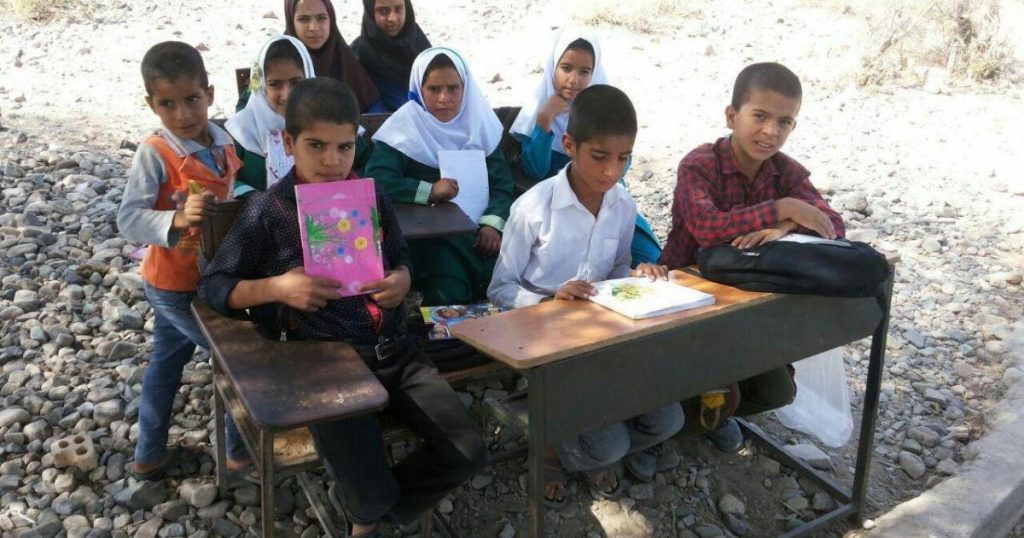
Along with a “purging plan” for schools in Iran and more than a week after the beginning of the educational year, more than 20,000 classes all over the country are in need of teachers.
MP Mohammad Vahidi confirmed the scarcity of teachers in Iran, urging that 23,000 classes do not have teachers.
Vahidi pointed to the education minister’s authorization for hiring retired teachers, saying the retirees are not willing to be re-employed. He added that although the retirees are supposed to work for only 24 hours per week, they have not welcomed this offer because a part of their past bonuses have not been paid yet.
The shortage of teachers has become a challenge for Iran’s Education Ministry. In recent months, retired teachers have held many protests in many Iranian cities calling for easing crackdowns and pressure on teachers, freeing jailed teachers, meeting their union demands including a raise in salaries based on the inflation rate and receiving their back pay.
Retired teachers have held protests in different cities of Iran in which a number of them have been arrested. Along with the oppression against teachers’ associations after last year’s nationwide protests, a new wave of summoning and dismissing teachers has started with the beginning of the new educational year.
The Iranian education minister recently expressed concern over the shortage of teachers all over the country, announcing that his ministry has made the decision to ban university student-teachers from working in schools in the new educational year.
It seems that the Iranian Education Ministry is going to use the shortage of teachers as an excuse for hiring seminary students in schools.
Deputy Parliament Speaker Mojtaba Zolnouri recently confirmed this news saying that 7,000 teachers from seminaries, particularly in girls’ schools, are going to be hired by the Education Ministry.
Global Warming in Iran Twice the Global Average
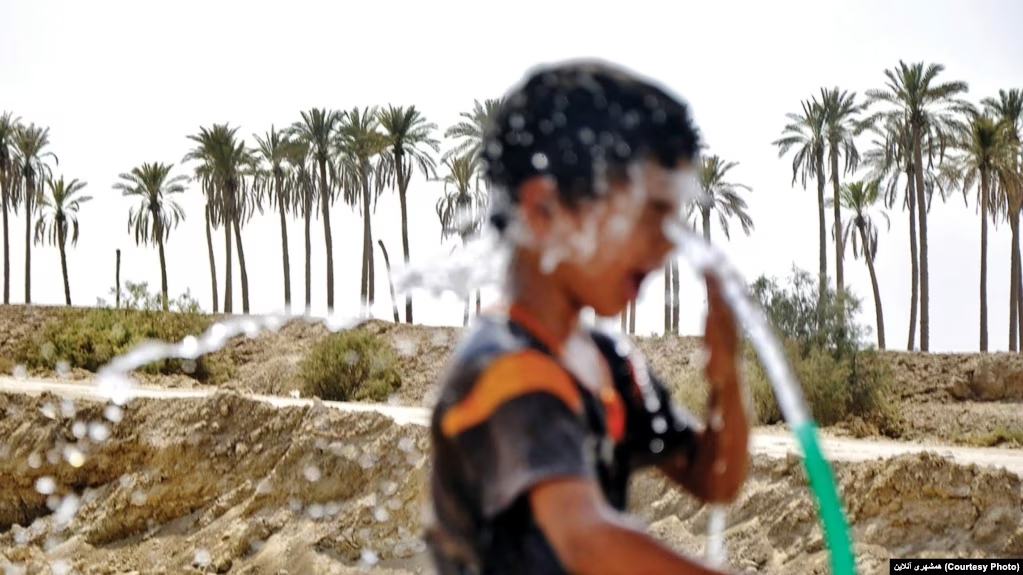
The Head of Water Studies at the Iranian Energy Ministry says that the rise in temperature in Iran is two times more than the global average.
Mohammad Reza Kavianpour pointed to the historic record of heat in Iran last summer, asserting that the Earth’s temperature has increased by 0.66 degrees globally in the past three decades, while this number was 1.3 degrees in Iran.
He went on to say that the rise in temperature in Iran has varied across the country, for example, the change in temperature has been between 3 degrees to 5 degrees in some parts of the country and between 1 degree to 2 degrees in other parts.
Kavianpour also announced that there has been a 20% drop in precipitation in the past several years in Iran.
Earlier this year, the scientific journal Lancet had written in an article that Iran is the most vulnerable country in the Middle East with regard to global warming.
According to this report, the current rate of mortality due to global warming is 2.1 for 100,000 people on average, but if the current trend of rising temperatures continues, this number will increase to 123 people.
In the case of Iran, this number is currently 11 deaths per 100,000 people which is five times more than the average in the Middle East. But in the next four decades, this number will be 423 people.
The most important factor in global warming is the release of greenhouse gases. According to international statistics, including those of the World Bank, the International Energy Agency and the Carbon Project, Iran is the largest emitter of greenhouse gases in the Middle East and ranks sixth in the world.
The statistics of the Carbon Project and BP Company show that the production of greenhouse gases in Iran has not only not decreased since 2015, but has increased by 22%.
Iran’s Trade Deficit Doubled
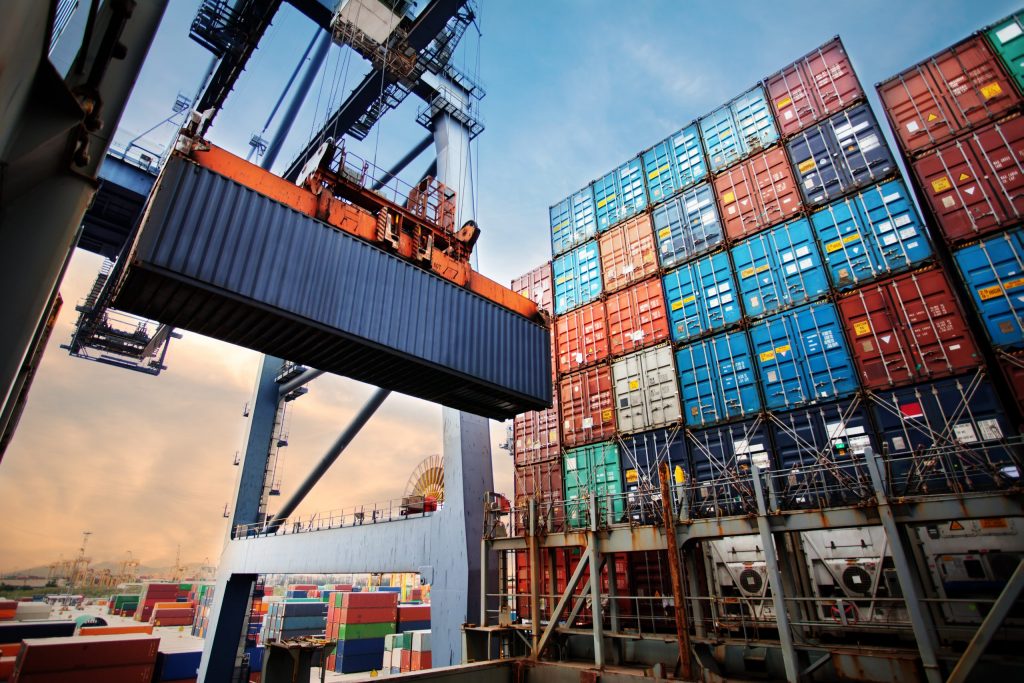
The statistics of Iran’s Customs Office show that the country’s foreign trade deficit in the past six months was more than $6 billion which is twice as much as the same period last year.
According to Mohammad Rezvanifar, the head of Iran’s Customs Office, in the past six months, Iran has exported $24.144 billion of non-oil products which is 2.6% less compared to the same period last year.
In contrast, Iran’s imports have increased by 11.6% compared to last year, reaching $30.443 billion.
In other words, Iran’s imports in the past six months were almost $6.3 billion more than its exports.
The value of Iran’s exports has dropped while the volume of exports has increased because there has been an almost 25% drop in the average price of Iran’s exported goods.
As a result of the Russia-Ukraine war, global prices of many of Iran’s exported goods, including oil, gas, petrochemical products and metals, were raised, which is why Iran’s export revenue last year was the highest in the last decade.
The statistics published by Iran’s Customs Office do not include crude oil, kerosene, mazut and services.
According to the Customs Office, the biggest non-oil exported goods of Iran in the past six months included natural gas condensate, propane and butane gas.
The highest imported goods by Iran included corn, cellphones and soybean.
The Customs Office’s statistics show that Iran’s imports have reached the highest in roughly the past decade, with more than $60 billion of goods imported to the country in the past 12 months.
